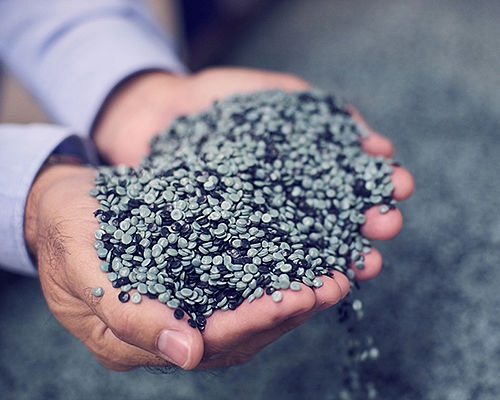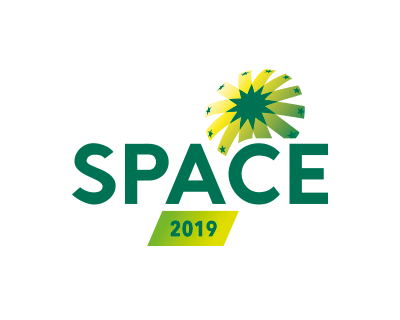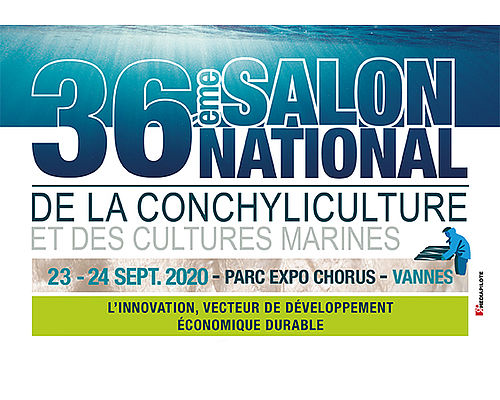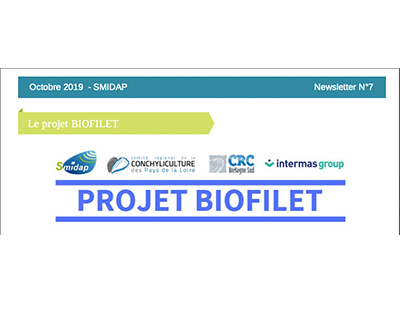Discover our new range of biocompostable nets.
Since the inception of our Company, our goals have always been a combination of great passion for quality and sustainability, putting our customers at the center of what we do best: produce extruded netting. With these 3 pillars in mind, our Engineering Development team has come up with an innovative solution for what we believe is the future of industrial packaging: Bio Sleeves.
Bio Sleeves in a nutshell
Bio Sleeves are just like those regular sleeves Intermas has been producing for more than 60 years, with the only difference that they do not contain plastic at all. They are manufactured with a special blend of compostable raw materials, which allows for a full biodegradability and compostability.
Traditionally, these kinds of so-called "organic" polymers are considered very tricky to work with at industrial scale. They work well with 3D printers and other low-volume processes, but plant engineers around the globe have struggled to get those polymers to work correctly and adapt to the high-quality standards that most plastic manufacturers have. And so have we.

After many unsuccessful attempts in which we learned a lot about the behavior of organic polymers in our industrial process, we came up with a solution which performed perfectly. Our selected blend had all the chemical and physical properties needed to behave just like standard polyethylene. Bio Sleeves were born.
A word on the "Bio" concept

There is a lot of buzz regarding what bio-polymers are at their core and how they degrade back into the environment. Many manufacturers use the word "Bio" for stating different polymer behaviors. We can define three main categories:
- Oxo-degradable: this concept stands for those polymers that visually disappear after a certain period of time. They break into tiny pieces. Although, the reality is that they don't physically disappear or degrade. Oxo-degradability is actually banned by many norms and policies, and has been appointed as one of the causes of the current microplastics environmental problem.
- Bio-degradable: this concept is basically a wildcard. All plastics are bio-degradable, but it may take them decades, or even hundreds of years to degrade back into the environment. If a time frame for that bio-degradation isn't set, this concept can lead to customer deception.
- Bio-compostable: this is the key concept when it comes to tested and fast degradability of a polymer. Bio-compostability responds to certain norms and policies regarding how fast and under which conditions a polymer degrades back into the environment.
Intermas' Bio Sleeves fall under the bio-compostable polymer category. They can be disposed in standard organic bins and will compost in a few months.
Bio Sleeves vs. polyethylene sleeves

For many years, polyethylene has been the king of packaging in its multiple forms and applications. Ductility is one of its most coveted properties, along with its impact strength: polyethylene stretches instead of breaking. It also can be washed and reused many times. Oh! and it is quite affordable.
Competition is tough for a relatively high-end packaging material like Bio Sleeves, but mindset change is happening fast, and many end users of polyethylene sleeves are beginning to see the added value of not only a sustainable product, but also a sustainable packaging. The increase in brand and product value through this innovation is helping these companies to be one step ahead of their competition. The purchasing boundaries that price used to set are gradually blurring for many.
A surprisingly good performer
It is no secret that even our own Sales Team was a bit reluctant when it came to performance and storage conditions of our new Bio Sleeves. Many questions arose, mainly because of the great unknowns that this new product poised. Would they stretch as it is meant to be? Would they last while stored in our customers' warehouses? Would they degrade faster than traditional polyethylene sleeves under the same operation and storage conditions?

"The development of our range of Bio Sleeves, among other plastic-free extruded products has been one of our most challenging and rewarding projects in the past 5 years." Domènec Mauri - Engineering Development
All these questions were somewhat logical and answering to them internally allowed our Sales Teams to prepare adequately for our potential customers' questions and write down our own Bio Sleeves' 101.
- Elasticity: Bio Sleeves perform almost identically as standard polyethylene sleeves. Our first internal quality assessments showed no decrease in flexibility or impact strength whatsoever.
- Storage: Although many tend to think that if a piece of packaging is bio-compostable, it will degrade faster than its "standard" counterpart, this is far from reality. Under normal operating environments, there is no degradation at all of any bio-compostable packaging. The bio-degradation itself is only triggered under certain conditions and a proper mixture of water, oxygen, carbon, nitrogen and micro-organisms. These conditions take place only in dedicated composting facilities, either at a household or industrial scale.

"Although many customers didn't know about Bio Sleeves, the simple fact that we already offer them in our product portfolio raised inmediate interest." Tony Hammou - Sales Manager
With everything in place internally, we felt it was the right time to hit the market. First our engineers developed the nets, then our internal assessments convinced our teams. But this meant nothing, the key was to engage our customers. We are proud to say that we have stood to this challenge and Bio Sleeves are now a reality in our portfolio.
Versatility taken to the next level
Our new family member inside Intermas Protection Range adds even more options for our customers when it comes to protect their most valuable items. From machined parts for the automotive industry to chromed and painted aluminum elements for furniture. From fragile wine and liquor bottles to sturdy gas bottles and cylinders.

From now on we will not only offer the versatility of customized colors, lengths and diameters for our protective sleeves range, but we will also be able to offer a greener, more sustainable and even more appealing product to new and existing customers, as well as to our valued distributors.
Do you want to know more about this and other exciting and innovative projects in industrial packaging? Feel free to contact us.
Credits: Photo by John Cameron on Unsplash



